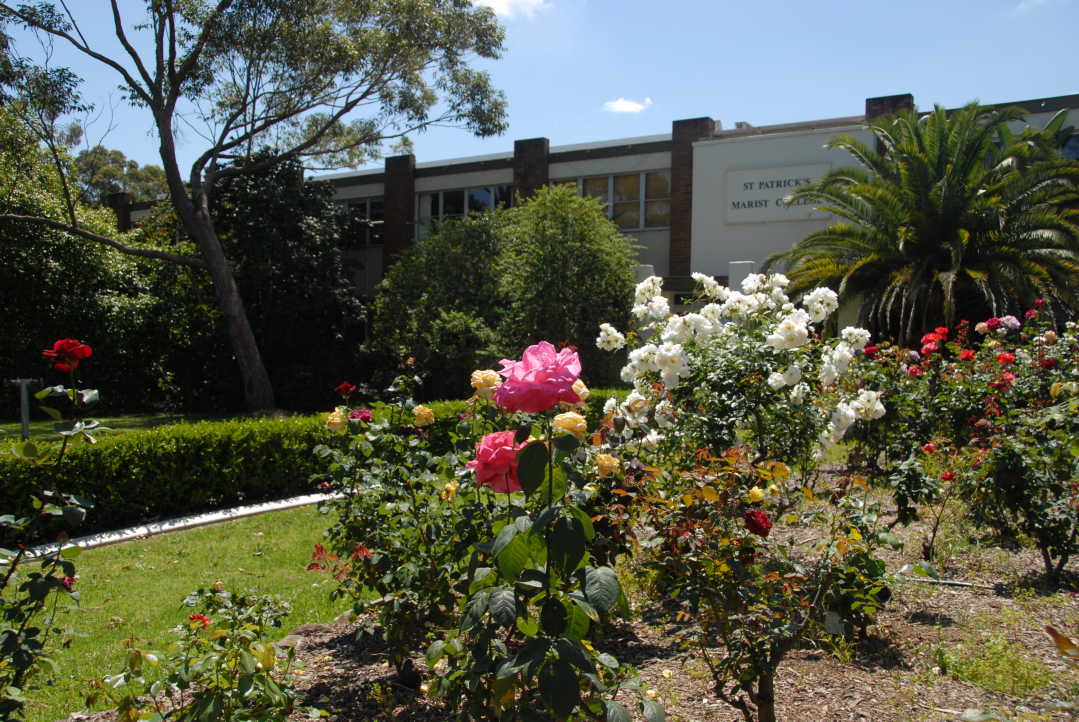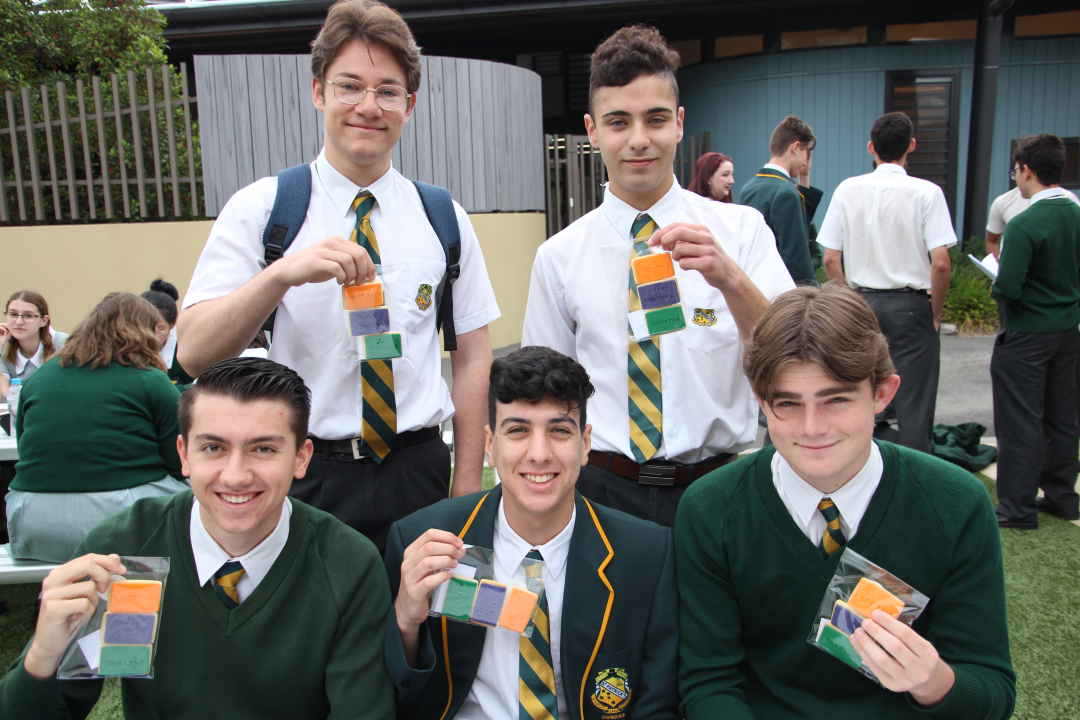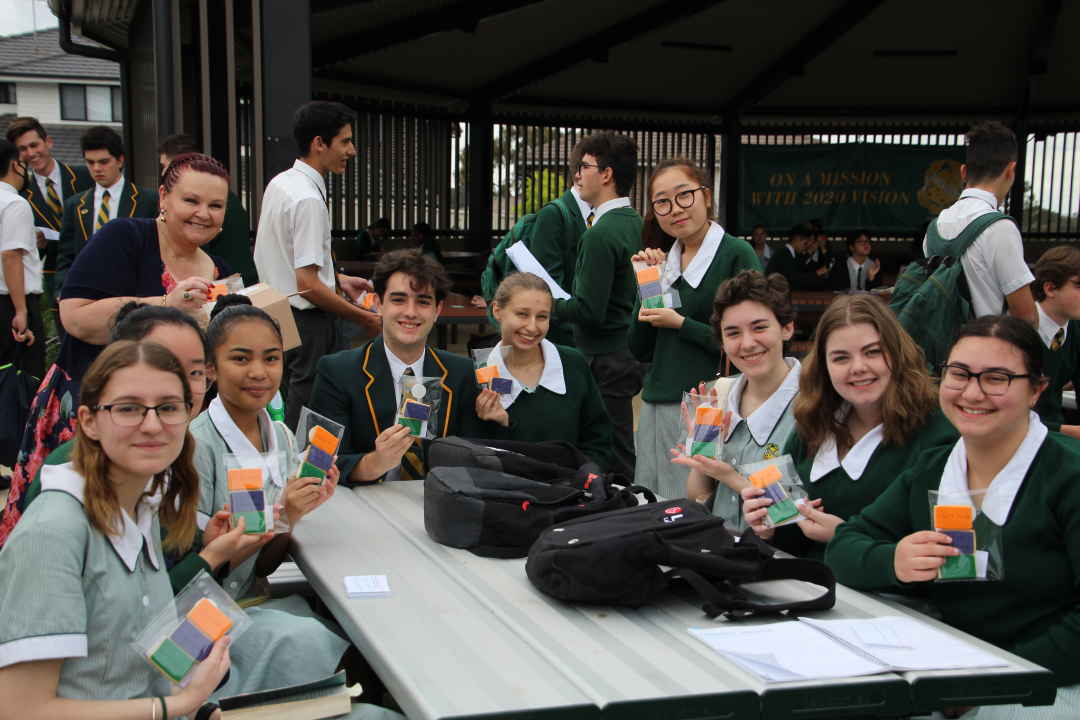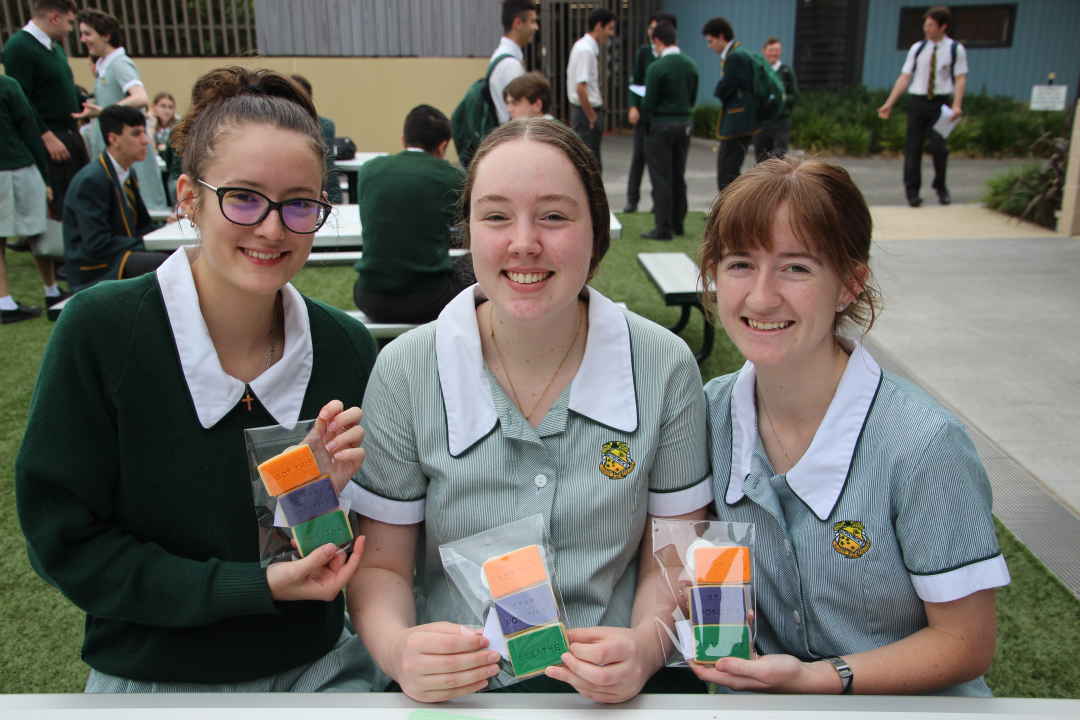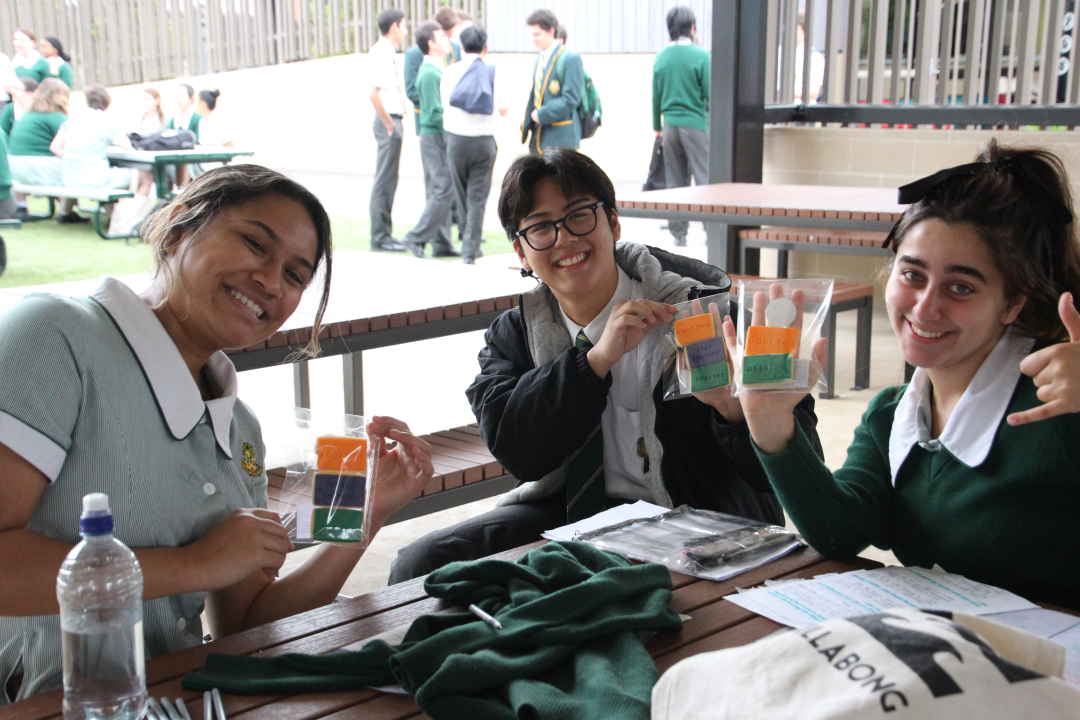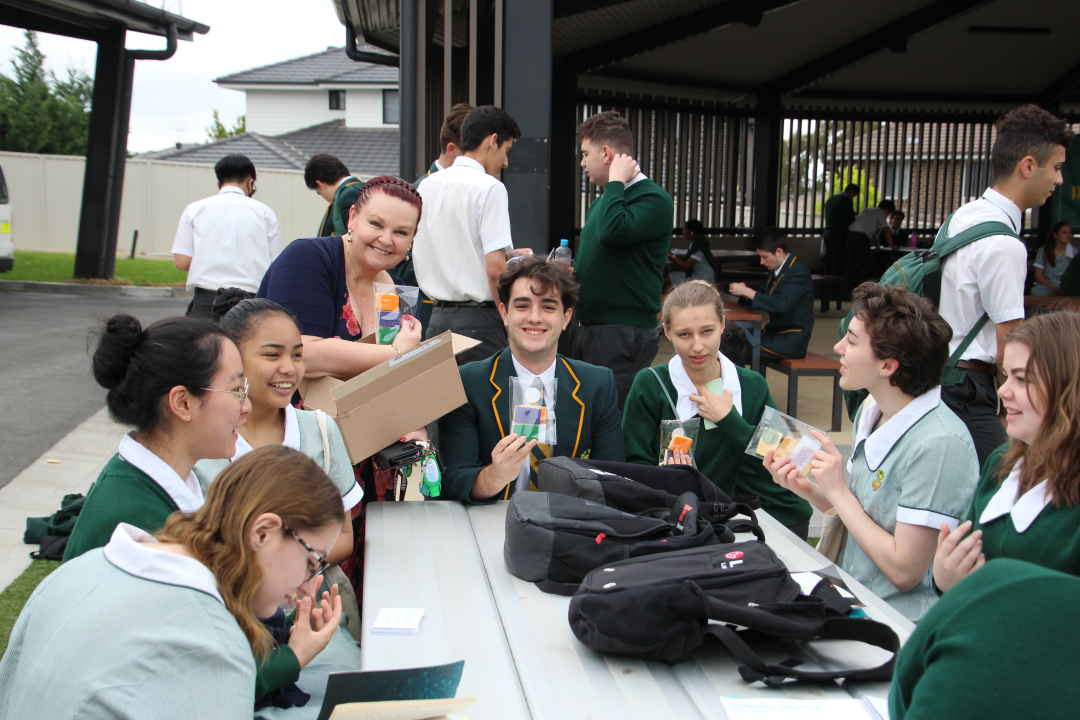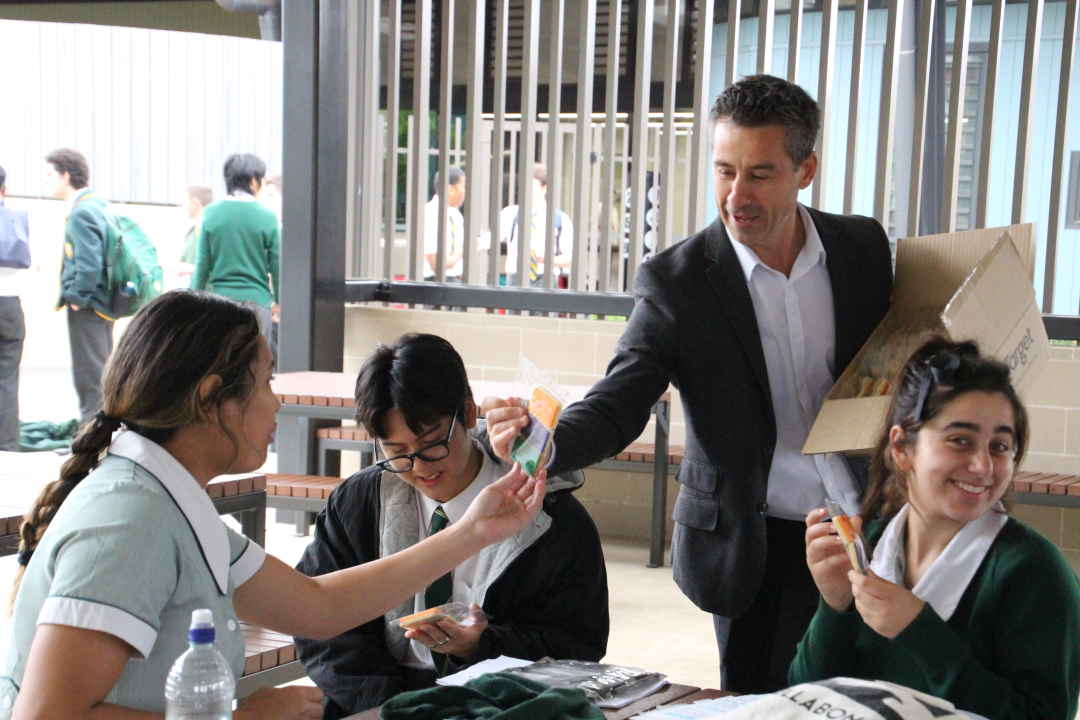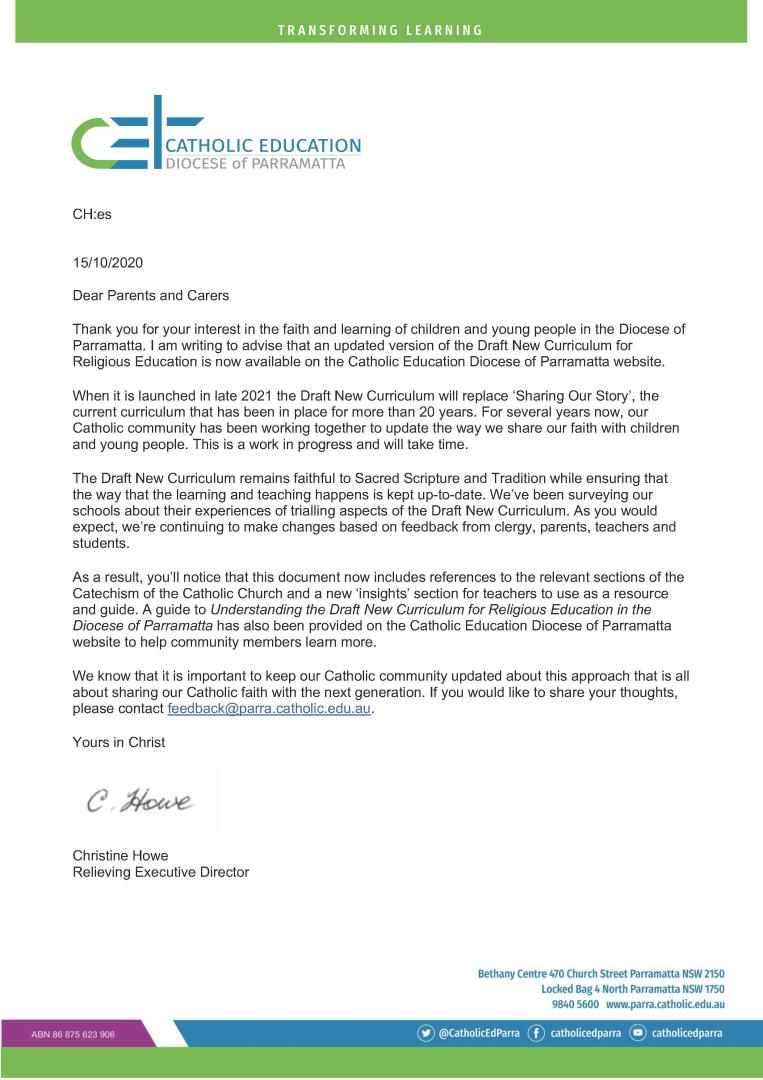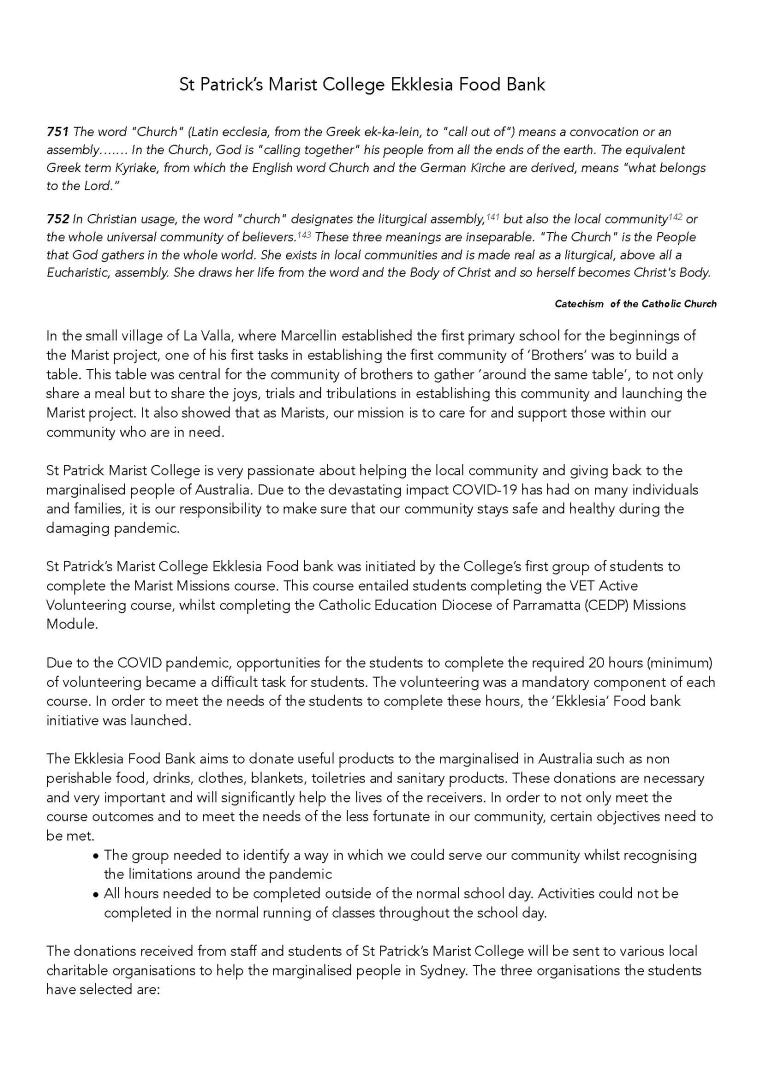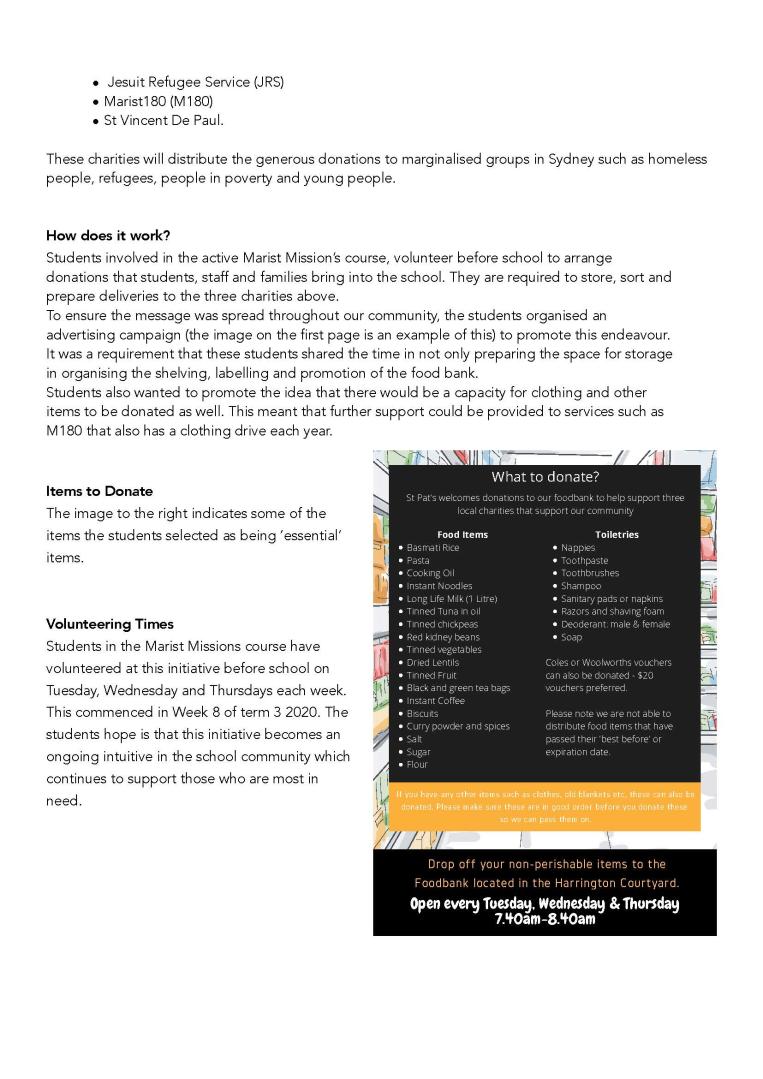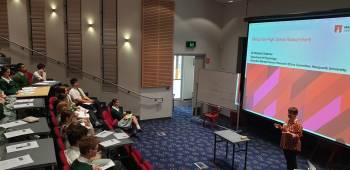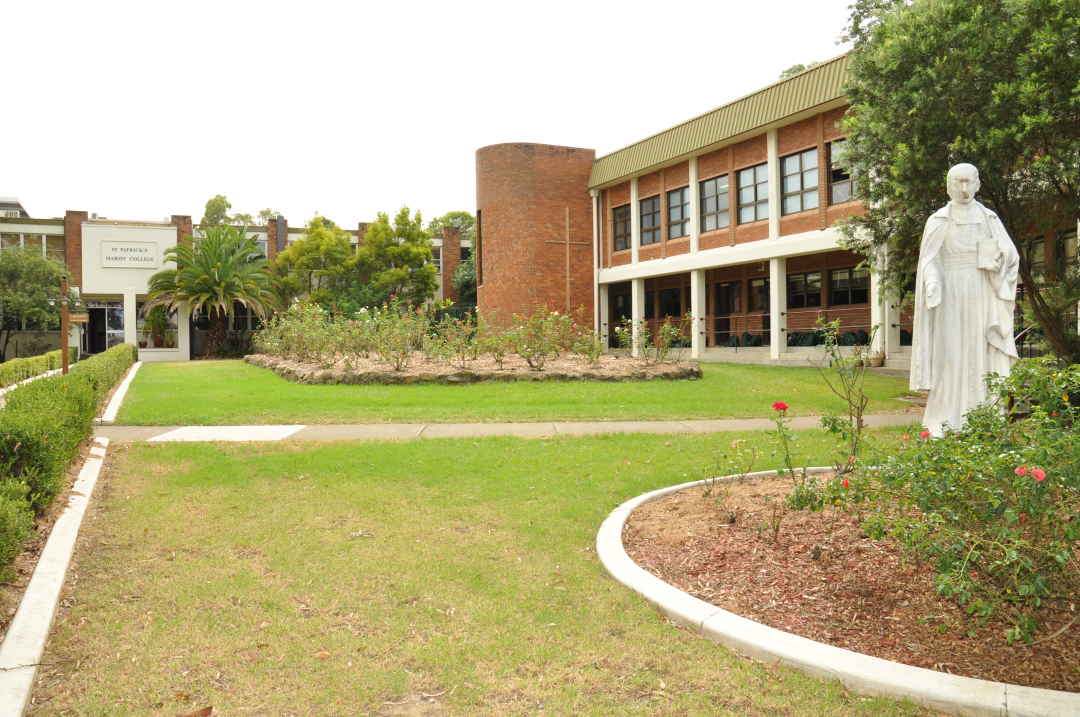In the coming week, Year 12 families will receive a letter regarding the Year 12 Graduation that will now take place at 5:30 pm on the 12th November, 2020. Year 10 and 12 students will also receive letters regarding their formals this week.
As you drive by, you will still see the fencing up around our new building. There is a great deal of frustration by all, however, we are still in the process of repairing piping around the school before we can get the Occupation Certificate. We hope it will be ready next week. Given the ongoing COVID restrictions, we are unsure of when we will be able to have open times for our current families to view the spaces. However, we do plan to use Catholic Schools Week next year to invite current families in to see our learning in action.
The ongoing frustration with the young people’s online consumption:
COVID has brought with it many challenges. We have seen in our recent TTFM data an increase in our young people’s levels of anxiety and depression. We have begun to unpack that data and will work with both staff and students in identifying areas of concern in both wellbeing and learning and work together on next steps .
One of the effects of COVID, with less activities available outside the home, has been an increase in young people’s time on social media and streaming services such as Netflix. Firstly physical exercise is key to feeling well. “About Kids Health, May 2020” reminds us that physical activity keeps the body strong and healthy and can improve mental health by decreasing symptoms of depression, anxiety, pain and loneliness. Physical activity can also improve focus, school performance, sleep and energy levels. It is important that we encourage physical and other activities and interests that will take young people away from in front of the screen.
Social media use has become so pervasive in the lives of young people. There would be very few young people who are not active users of social media, streaming services and other online platforms. Most log on multiple times daily (and sometimes late into the night) to their social network pages and these have become spaces where much of the social activity of teen life is echoed and amplified—in both good and bad ways.
In my lifetime, magazines and advertising have long been criticised for upholding dangerously unrealistic standards of success and beauty, and in my youth these images did create the normal levels of self doubt, but not only did I come to understand that these photos were made-up, retouched, and photoshopped, I also did not spend endless hours reading them.
With the rise of social media, it is not only celebrities or models that present these impossible standards, it is all around us. For us adults, it is friends and colleagues, for students it is the wide group of connections that they have on social media they define as friends. With social media, people can curate their lives, and the resulting feeds showing only the best and most enviable moments while concealing efforts, struggles, and the merely ordinary aspects of day-to-day life. And there’s evidence that those images are causing distress for many young people.
This is creating a much greater prevalence of social media feeds becoming fuel for negative feelings that young people have about themselves. Kids struggling with self-doubt read into their friends’ images what they feel they are lacking and that self doubt sometimes spreads itself to all areas in a young person’s life.
“Kids view social media through the lens of their own lives,” says Dr Emanuele (Clinical Psychologist at the Child Mind Institute). “If they’re struggling to stay on top of things or suffering from low self-esteem, they’re more likely to interpret images of peers having fun as confirmation that they’re doing badly compared to their friends.”
Despite efforts to educate young people on the impact of cyberbullying on others, many young people at some time have experienced hurtful things being said. There seems to be an increase in these kinds of behaviours and an unwillingness or fear, to turn it off, to unfriend someone, or challenge. This is in some ways understandable. Online life is a key part of a young person’s identity and how they interact socially. Belonging and connectedness to others is so key to young people.
I recently read an article on ways to help young people feel good about themselves. One area encouraged parents to focus on self compassion rather than self esteem. I have included an excerpt for thought.
Focus on self-compassion (not self-esteem)
Because self-esteem is a global evaluation of your overall worth, it has its dangers. What am I achieving? Am I good enough? How do I compare with my peers?
What would happen if we could stop judging ourselves? Researcher Kristen Neff claims that self-compassion—treating yourself with kindness, openness, and acceptance—is a healthy alternative to the incessant striving and performance orientation often tied up with self-esteem.
In her study of adolescents and young adults, she found that participants with higher self-compassion demonstrated greater well-being. Why? They were okay with their flaws, acknowledged that they struggled just like those around them (“Everybody makes mistakes; you are not alone”), and treated themselves with the same kindness they would extend to a friend (“It’s okay; you did your best”).
I have always found a great technique to use, that is, to ask “what advice would you give/what would you say to a friend if they were feeling like this? Please remember we are always here to talk to if you want some advice, or are worried about your son or daughter.
I would also like to sincerely thank Dr Todorov, who is a Psychology Lecturer from Macquarie University (and a parent of the College), who took the time this week to give a presentation to our Year 11 Community and Family Studies class, along with the Year 11 Society and Culture classe on Research Ethics.
2021
As we move into Term 4, I ask that if your child/ren won’t be continuing here in 2021 that you let us know as soon as possible, we have waiting lists in every year group.
Mrs Angela Hay
Principal
